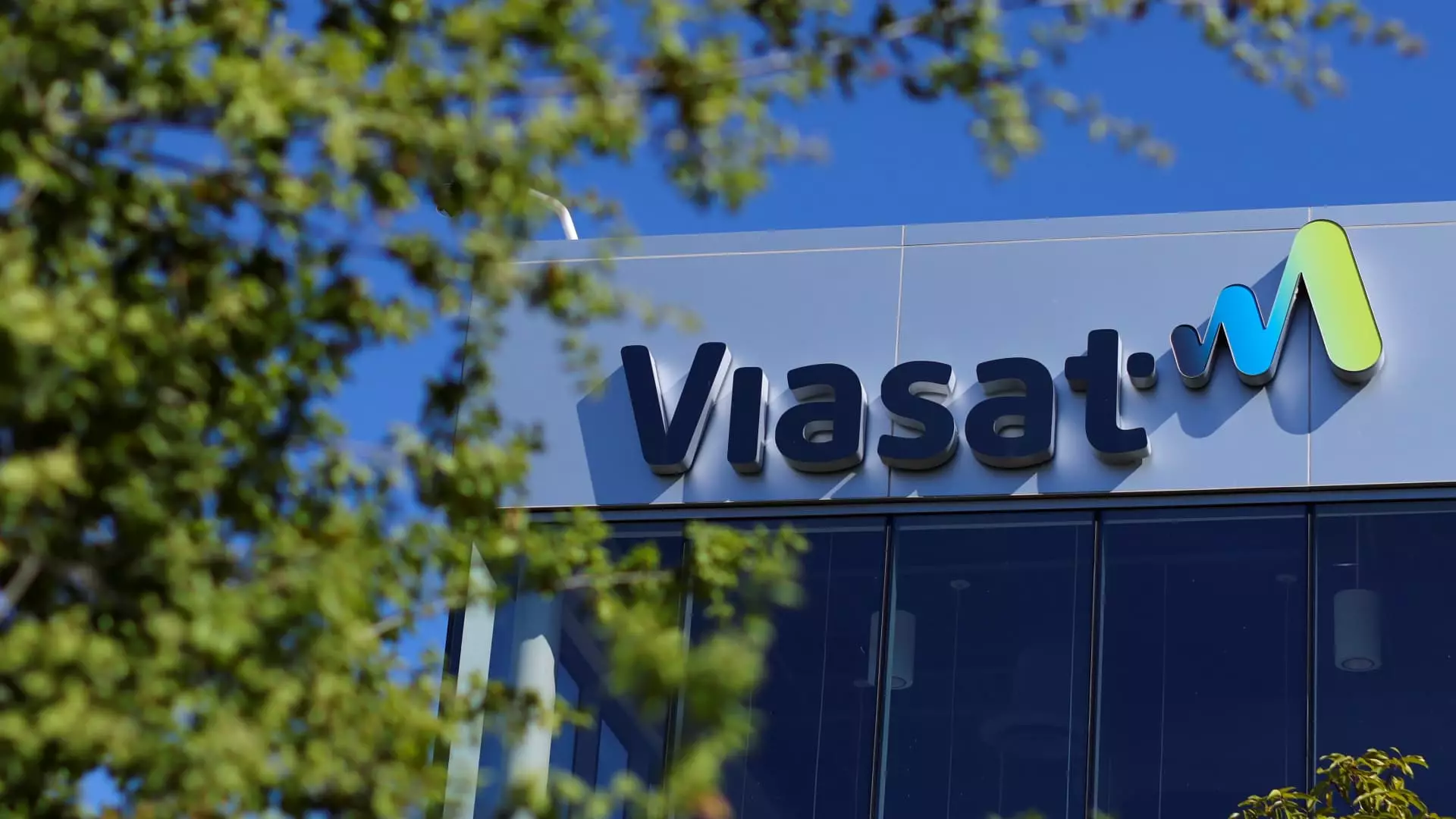On Monday, Viasat’s stock experienced a meteoric rise, buoyed by an analyst note from Deutsche Bank that nudged its status from hold to buy. This 13% surge in share value doesn’t just signify a short-term spike but reflects a more profound narrative about the potential of a major player in the satellite internet arena. Yet, while these developments suggest a promising trajectory for Viasat, they also warrant a cautious examination of the competitive landscape—most notably, the formidable presence of Starlink, Elon Musk’s brainchild through SpaceX.
Analyst Edison Yu’s assessment notably points out that Viasat has multiple pathways to bolster equity value, primarily through deleveraging its balance sheet. However, what could be perceived as bullish optimism must be tempered with a sense of realism. Yu himself acknowledges the long-term threats posed by Starlink’s aggressive expansion—a reality that Viasat must wrestle with continuously. As Starlink forges partnerships in key markets like India and Indonesia, the competitive pressure mounts. This is no mere financial evaluation; it encapsulates a race for consumer loyalty in a rapidly evolving tech landscape.
A New Era of Satellite Communications
Viasat’s recent performance can be seen as part of a larger awakening in the satellite communications sector. While the excitement around their stock shift shows the market’s recognition of Viasat’s potential, it also invites a critical dialogue about sustainable growth versus speculative investment. The company has proven its mettle with a 30% increase year-to-date, starkly contrasting with the broader market’s downturn. Yet, this momentum must be scrutinized through a nuanced lens.
The allure of satellite internet lies not only in company performance metrics but also in the relentless pace of innovation that characterizes this field. Unlike traditional telecommunications methods bound by infrastructure limitations, satellites offer unprecedented reach. However, the very same technology that Viasat champions faces opposition from Starlink’s rapidly deployed systems. With aggressive pricing and widespread availability, Starlink has raised consumer expectations to an unprecedented level, which Viasat must either meet or risk being left in the dust.
The Moral Imperative of Corporate Strategy
In navigating these headwinds, it is essential for Viasat to develop a corporate strategy that does not solely hinge on investor sentiment or short-term stock movements. The focus should be on creating enduring value through consumer connectivity—something that resonates in today’s digital-first world. This is not merely about maintaining a competitive edge but fostering a corporate ethos that prioritizes equitable access to technology. As Viasat clusters its efforts around asset monetization and balance sheet improvement, it must simultaneously ensure that its advancements in satellite communications translate into tangible benefits for users.
In essence, while the stock surge triggered by Deutsche Bank’s upgrade is noteworthy, it is merely the beginning of a far more complex conversation regarding Viasat’s role in the global telecommunications landscape. The stakes are too high for a one-dimensional approach; the interplay between strategic business decisions and public perception must be balanced carefully to cultivate a sustainable future.

